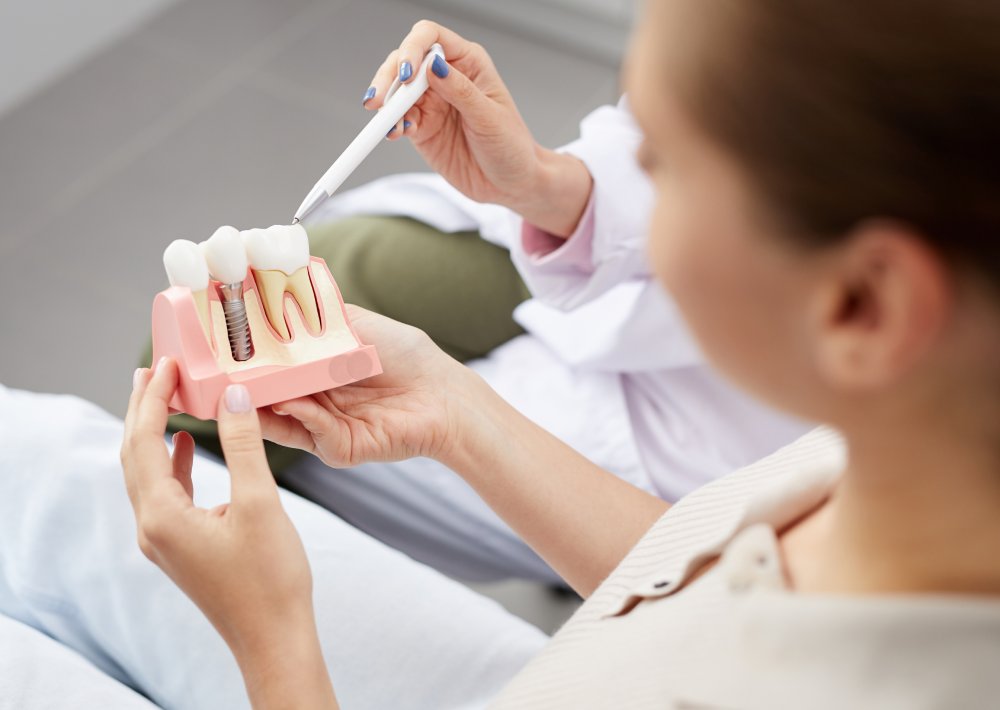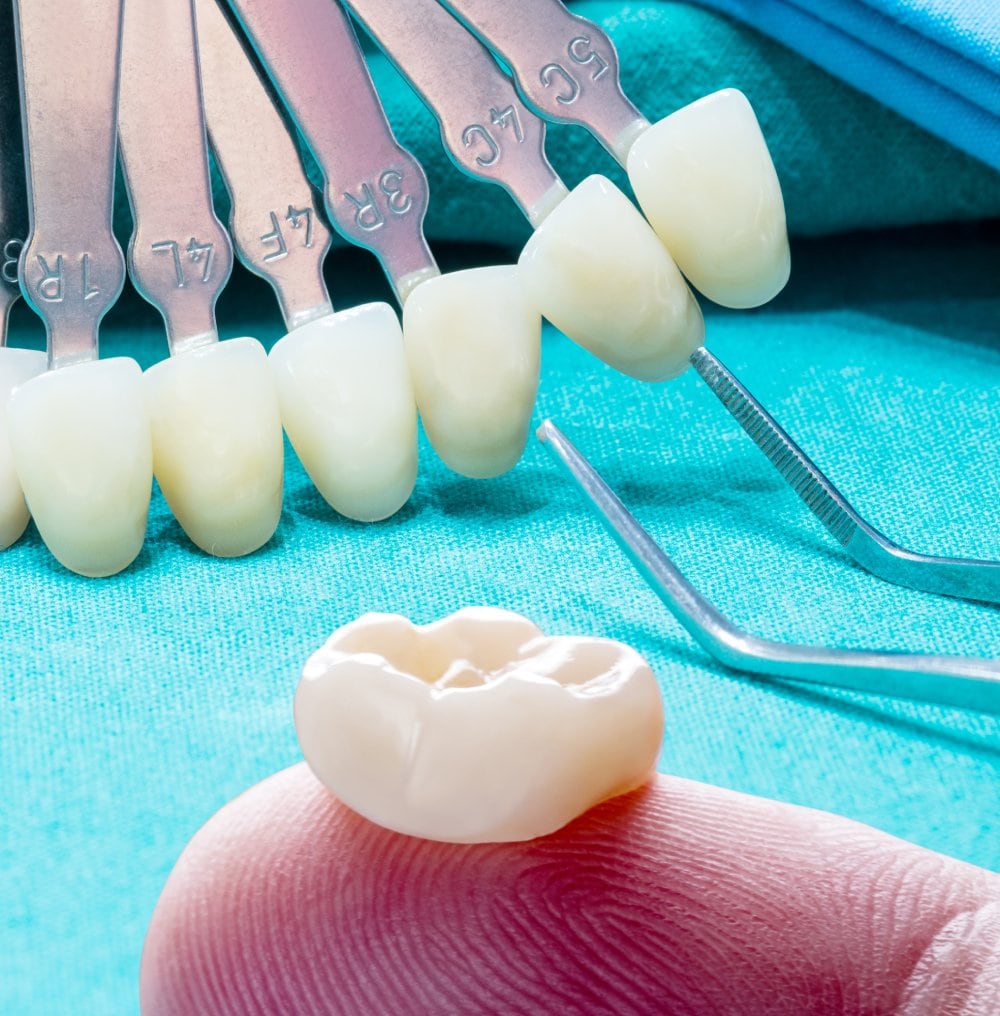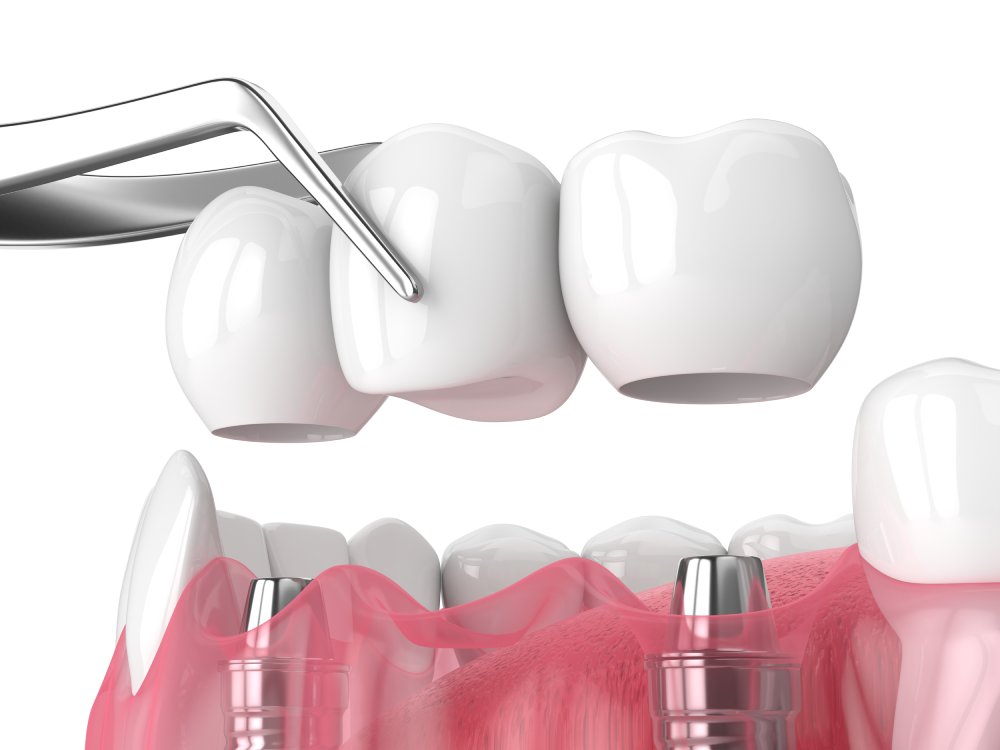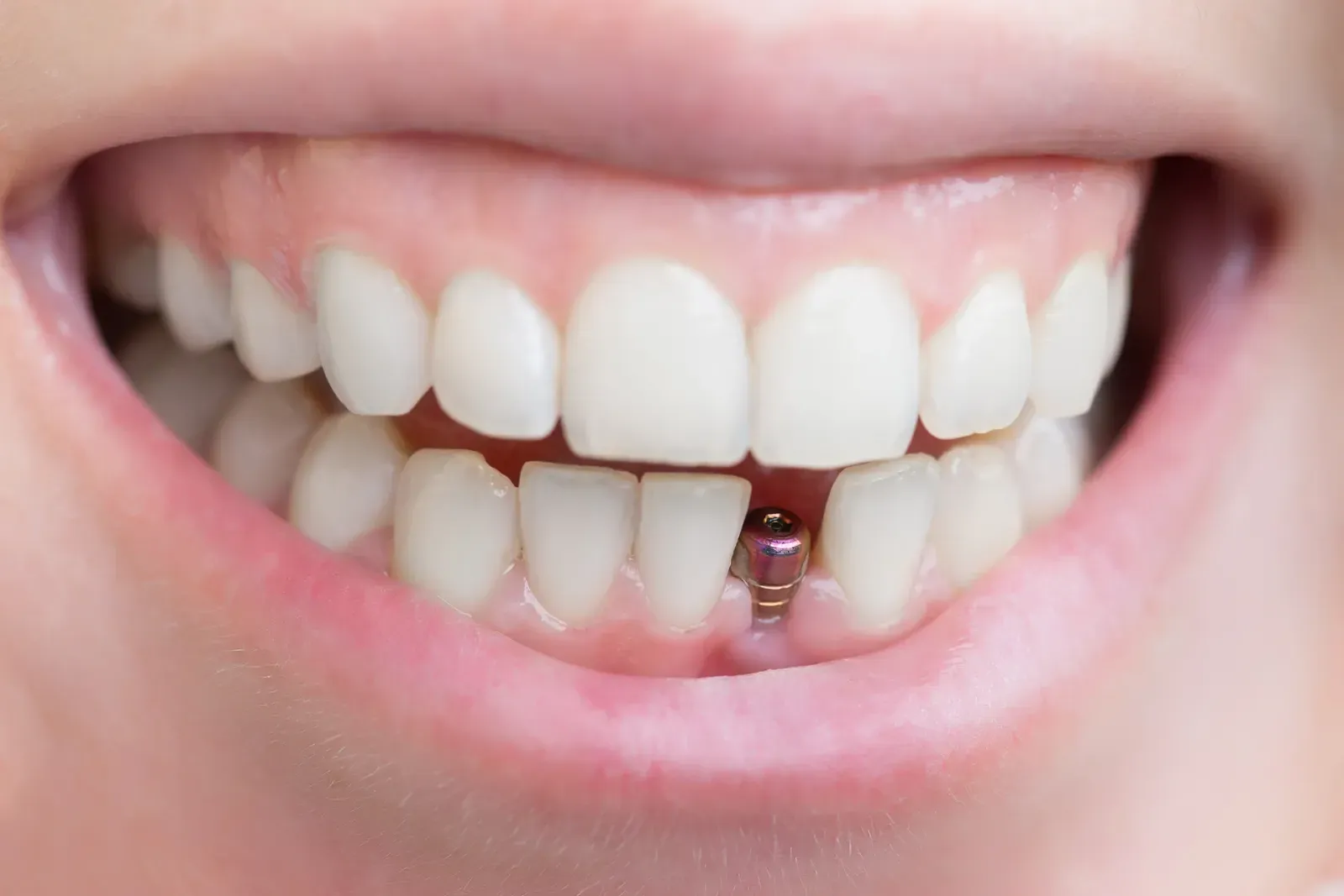Napa Dentist Dr. Sasha Rozenberg recommends dental implants as the most effective way to replace missing teeth. However, the implant itself only replaces the tooth’s root beneath the gumline. To fully restore your smile, an implant restoration such as a custom dental crown is essential
Why should I get an implant restoration?
Implant restorations are a necessary part of any dental implant treatment plan. The implant itself is just a small piece of metal that acts as an artificial tooth root. To restore the tooth completely, you need a restoration like a dental crown, bridge, or set of dentures. Together, your dental implant and your implant restoration will keep you smiling for decades to come.


Dental crowns are the most common implant restoration, and are used to restore a single missing tooth. They function exactly as a natural tooth does, and they blend seamlessly with the rest of your smile.

A dental bridge is used to replace several missing teeth in a row. An implant-supported bridge performs the same function, only it is attached to a dental implant instead of a natural tooth.

If you’re missing most or all of your teeth, a full-arch restoration can give you your smile back, without relying on uncomfortable dentures. Using several dental implants, we can anchor a durable, beautiful new smile that you’ll be proud to show off.

Using advanced technology, we can digitally scan your mouth and plan your treatment with precision and efficiency. You’ll even get a sneak peak at your completed smile, before treatment even begins!
Additional Frequently Asked Questions About Implant Restorations
Check out these frequently asked questions, or call us to speak with our team.
What types of implant restorations are there?
Are implant restorations covered by insurance?


